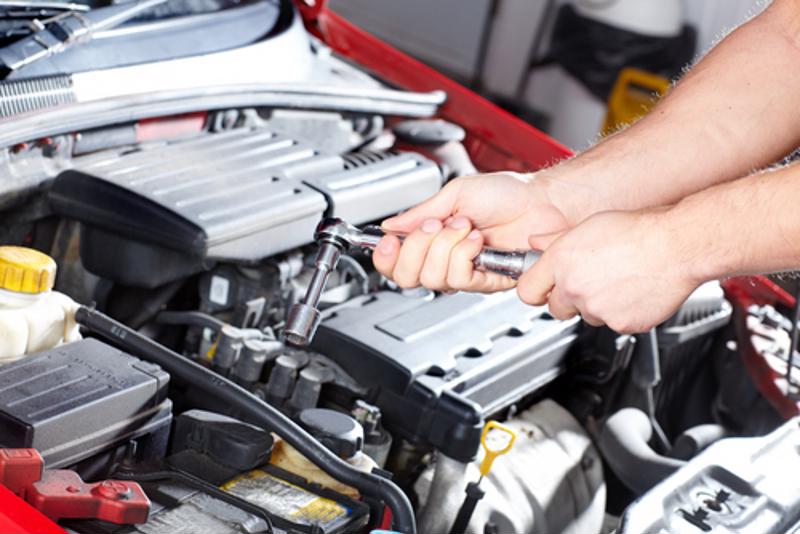

It takes a lot of energy to stop a car. Even Fred Flintstone needed to really dig his feet into the ground to get his car to stop. Now, imagine his vehicle wasn't solely run by how fast he ran but with a modern engine. Trying to stop would be nearly impossible. That's where brake boosters come in. This article will explore what these are and how to identify a faulty brake booster system.

When you're driving and you come to a stop sign, you will apply pressure to the brake pedal which will then slow your car down. When you press the pedal, the brake booster uses engine vacuum and pressure to support the brake pedal with increased force on the master brake cylinder. Essentially, if Fred had used a brake booster, it would have significantly increased his ability to stop more quickly.
The booster is what separates a car with a power steering system and one with manual steering. They are used most commonly with cars that use hydraulic brakes rather than pressurized air system brake circuits.
Without a brake booster, you would have to push a lot harder on the brakes to apply the same amount of pressure to the brake cylinder.
There are several varieties of brake boosters that accompany certain types of vehicles. Knowing the differences will help increase your awareness if there happens to be an issue with them.
Vacuum pumps will replace the engine intake manifold for cars that don't use air to cool the engine or use another method outside of an intake, such as turbo-charged vehicles, electric vehicles, hybrid vehicles and diesel cars. A vacuum pump is typically used in high-altitude locations where vehicles can't produce enough vacuum for the brake booster.
A vacuum brake booster is the most common type of brake booster. It uses the gas-powered engine's vacuum to increase the pressure used on the brake pedal.
The hydraulic brake booster uses direct hydraulic pressure. Instead of generating power from the vacuum pressure, it relies on energy from the power steering pump.
Feeling confident on the road means not only keeping up with regular maintenance but also knowing the signs for when you should bring your car into the shop for service. Regular maintenance doesn't cover everything, so be on the lookout for the common symptoms of a faulty brake booster:
Greening Testing Laboratories is a fully certified brake testing lab that provides a variety of brake testing services worldwide. Contact Greening for a complimentary consultation.